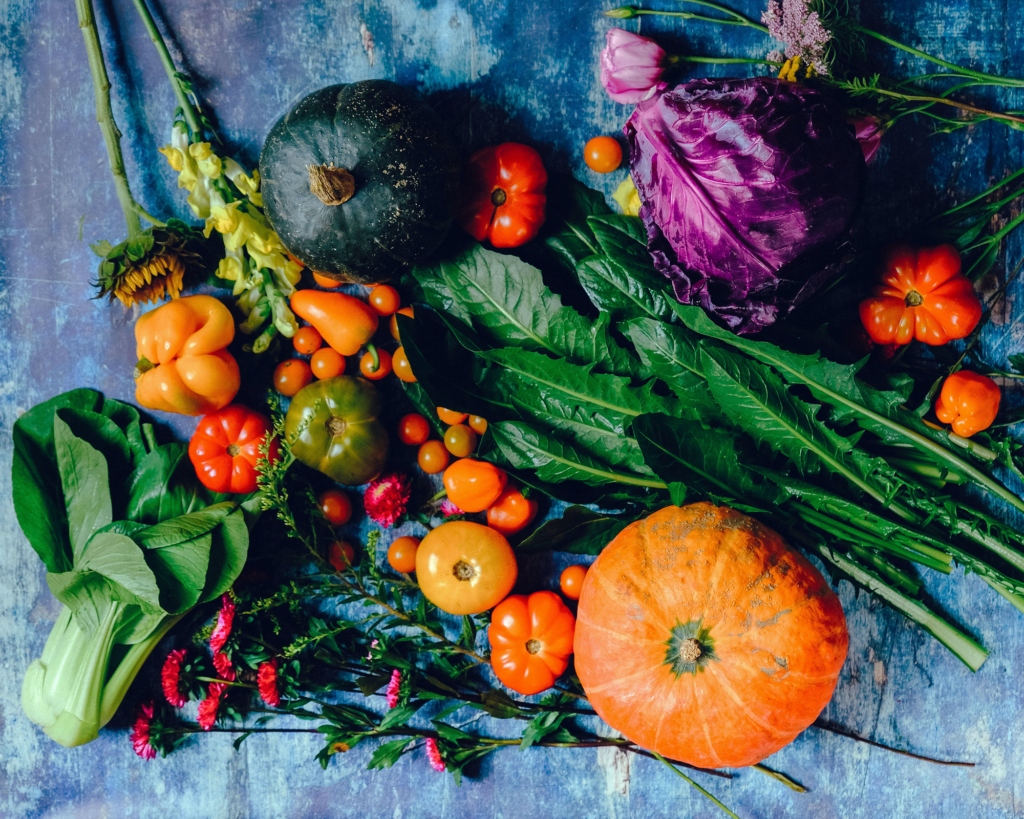With the convenience of grocery store chains and delivery that make getting any food you want available year-round, it’s easy to forget the natural rhythm of the seasons. However, there are compelling reasons to eat seasonally, from nutritional benefits to environmental impact. Eating in season means consuming fruits, vegetables, and other produce when they are naturally harvested. This practice offers modern benefits that align with health, sustainability, and taste.
Why You Should Eat Foods in Season
Richer in Nutrients
Seasonal produce is at its nutritional peak. Fruits and vegetables that are harvested at the right time in their natural growing cycle contain the highest levels of vitamins, minerals, and antioxidants. When food is grown out of season, it often requires longer storage or artificial methods to keep it fresh, which can reduce its nutrient content.
Better Flavor
When fruits and vegetables grow in their ideal climate and environment, they develop full, rich flavors that are often lost in off-season or artificially grown produce. This means you’ll enjoy food as nature intended, bursting with taste and vibrancy.
Cost-Effective
Eating seasonally is often lighter on your wallet. When produce is in season locally, it’s abundant, which drives the price down. On the other hand, out-of-season produce often has to be imported from far-off places, raising the price due to transportation and storage costs. Shopping seasonally means you’ll find the best prices at farmers’ markets and grocery stores, making it a cost-effective way to incorporate fresh, healthy foods into your diet.
Supports Local Farmers
When you eat seasonal food, especially from local sources, you’re directly supporting local farmers and the regional economy. Many local farmers practice sustainable agriculture, which promotes healthier ecosystems and reduces the carbon footprint associated with shipping produce across long distances. Supporting local farms encourages farming methods that are better for the soil, air, and water quality, as well as for community health.
Environmentally Friendly
Eating seasonally is better for the planet. When food is grown in season, it requires fewer resources like energy, water, pesticides or growth hormones) to thrive. On the other hand, out-of-season food often demands environmentally taxing practices such as heated greenhouses or shipping from distant parts of the world, increasing greenhouse gas emissions. By choosing seasonal, local produce, you reduce the environmental impact associated with transportation, packaging, and refrigeration.
Pumpkin season is here and so are a variety of fall-loving fruits and vegetables. Here’s what’s in season in your region.
Northwest
- Apples
- Plums
- Cabbage
- Tomatoes
- Leeks
- Pears
- Brussels sprouts
- Rutabagas
- Grapes
- Melons
- Beets
- Pumpkins and gourds
- Figs
- Winter squash
North Central
- Apples
- Beets
- Broccoli
- Cabbage
- Cauliflower
- Cucumbers
- Eggplant
- Rhubarb
- Lettuces and greens
- Melons
- Okra
- Pears
- Plums
- Pumpkins
- Radishes
- String beans
- Summer and winter squash
- Sweet corn
- Sweet potatoes
- Tomatoes
- Turnips
- Grapes
Midwest
- Apples
- Beets
- Broccoli
- Cabbage
- Cauliflower
- Cucumbers
- Eggplant
- Leeks
- Lettuces and greens
- Melons
- Okra
- Parsnips
- Pears
- Plums
- Pumpkins
- Radishes
- Rutabagas
- Sorghum
- Summer and winter squash
- Sweet corn
- Sweet potatoes
- Tomatoes
- Turnips
- Grapes
Northeast
- Apples
- Beets
- Broccoli
- Brussels sprouts
- Cabbage
- Cauliflower
- Cranberries
- Eggplant
- Melons
- Parsnips
- Pears
- Plums
- Pumpkins & gourds
- Radishes
- Rutabagas
- Sunchokes
- Sweet potatoes
- Turnips
- Grapes
- Winter squash
Southwest
- Almonds
- Apples
- Artichokes
- Beets
- Broccoli
- Cabbage
- Dates
- Figs
- Grapes
- Lettuces and greens
- Mandarins
- Melons
- Parsnips
- Pears
- Persimmons
- Plums
- Pumpkins and gourds
- Radishes
- Rhubarb
- Rutabagas
- Strawberries
- Summer and winter squash
- Sunchokes
- Sweet corn
- Tomatoes
- Turnips
- Walnuts
South Central
- Apples
- Beets
- Broccoli
- Brussels sprouts
- Cabbage
- Cauliflower
- Cucumbers
- Eggplant
- Figs
- Grapes and muscadines
- Lettuces and greens
- Melons
- Okra
- Pears
- Pecans
- Persimmons
- Pomegranates
- Pumpkins
- Radishes
- Squash
- Sweet corn
- Tomatoes
- Sweet potatoes
Southeast
- Apples
- Beets
- Broccoli
- Brussels sprouts
- Cabbage
- Cucumbers
- Eggplant
- Figs
- Grapefruit
- Grapes and muscadines
- Lettuces and greens
- Okra
- Oranges
- Peas
- Pears
- Pecans
- Persimmons
- Pumpkins
- Radishes
- Rutabagas
- String beans
- Summer and winter squash
- Sweet corn
- Tomatoes
- Sweet potatoes
- Tangerines
- Turnips
